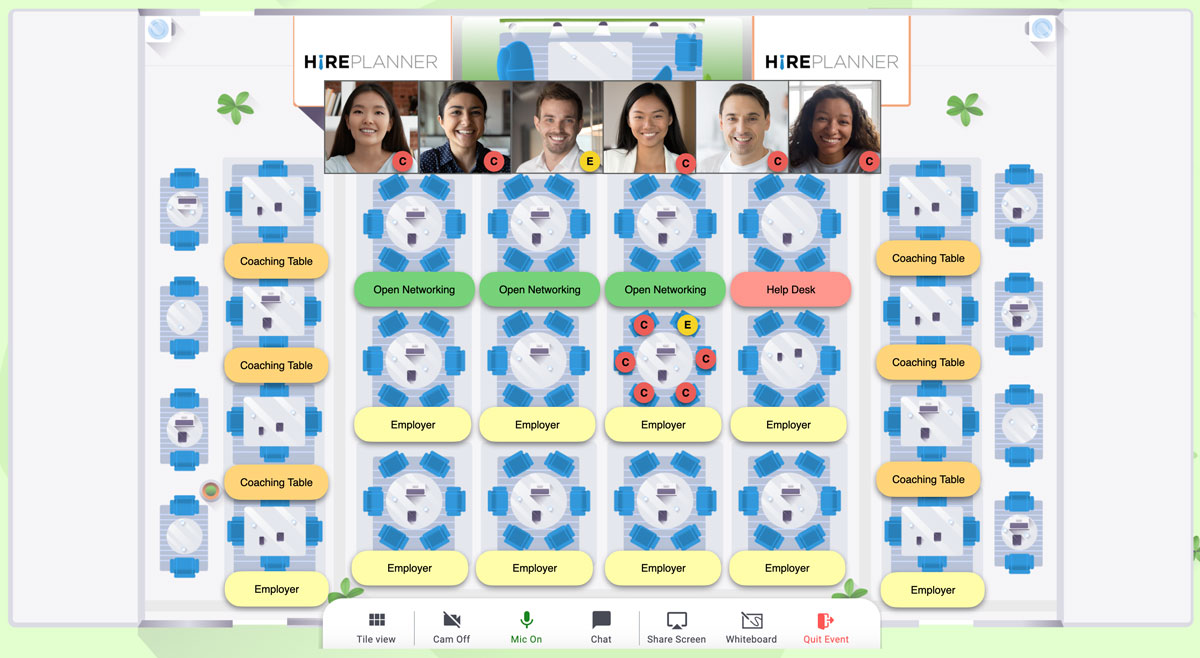Adjusting to a pandemic has not been easy for anybody. Individuals are working from home, and firms are still looking for ways to smoothly operate virtually. As the world opens up and vaccine programmes roll out, many firms are looking hard at the post-pandemic future.
While recruitment firms have a strong presence in Japan, the talent pool has always been smaller here in comparison to other countries. Demand in certain industries is changing and the need for different skills is increasing. BCCJ ACUMEN spoke to two industry professionals about the changing recruitment landscape, and the future of hiring in Japan.

Jeremy Sampson, managing director at Robert Walters Japan
Fierce rivalry
Robert Walters, whose firm specialises in permanent and contract recruitment solutions across all industries and sectors, said in a statement on 27 July that demand was outstripping supply in many of its 31 markets including Japan, the UK and United States, as hiring in the last six months had been speeding up.
“A war for talent and significant wage inflation is beginning to emerge”, the chief executive said while announcing the group’s first-half results.
Jeremy Sampson, managing director at Robert Walters Japan, said:
“Because Japan is such a talent-short market, even with the impact of Covid-19, hiring activities were less impacted compared to other countries. The competition for top talent remains fierce, with about 80 percent of companies expressing concern about talent shortages within their industries, particularly in manager and senior level positions. When we surveyed professionals working in Japan, 73 percent expressed confidence and optimism about job opportunities in their sectors”.

Fabien Brogard Cipriani, founder and CEO of HirePlanner
Fabien Brogard Cipriani, founder and CEO of cloud recruitment management system HirePlanner, explained that companies seem to have had two general responses to the coronavirus pandemic.
“There are two types of companies: companies that play defence and pretty much stop hiring and go into hibernation mode to cut costs and ride out the storm, and companies that play offense. The latter use this time as an opportunity to build a strong talent pipeline. They meet as many people as they can and prepare for when the economy picks up again”.
Soft skills
As remote working took over the professional world in 2020, and continues into 2021, the skills that are in demand have changed. The ability to communicate and form relationships—particularly over online platforms such as Zoom and Google Meet—is more important than ever. The significance of soft skills has grown.
“In our survey, over 100 companies answered what skills are most in demand within organisations in a post-pandemic world. It’s no surprise that communication skills ranked at the top—being able to communicate effectively is vital to establishing and maintaining relationships both internally and externally, especially with many working remotely these days. In times of crises and uncertainty, people often look for a strong figure who can lead the way in navigating difficulties, so it’s no wonder that management and leadership skills also rank high in terms of desirable soft skills”, said Sampson. “Closely related to this are crisis management skills. If the pandemic has taught businesses anything, it is that there is a dire need for crisis management skills to ensure that organisations can cope with the drastic changes in their methods of conducting business during challenging times.”

Remo Platform used by HirePlanner.com for their Virtual Career Event
Industry demand
As lockdowns across the world have encouraged people to stay home, certain industries have seen demand skyrocket. “Companies in the IT and Technology space have been doing well, since there is a strong motivation and demand for digital transformation”, Cipriani pointed out.
Sampson agreed, revealing that the use of online services and entertainment has increased, with working from home making technology an essential. “Digital transformation has been huge as companies have been trying to adapt to become more tech-focused both internally and externally toward their customers. We have seen an uptick in the number of positions in companies which offer technology that enables remote work as well as online services. With more of our daily lives being spent online, digital security has also been important, and we are seeing rising demand for professionals with skills in tech security, cyber security and data security as companies bolster their security measures in place”.
WFH
Even in Japan, which has long put a priority on spending time in the office, companies have been offering more flexible working conditions during the pandemic—working from home and flexible work times have become the norm. This has become something candidates value, according to Sampson, and firms need to consider this to have a competitive advantage when trying to attract top talent.
“It’s becoming clear that more professionals are prioritising work style flexibility and expect it to become a regular option, even beyond the pandemic. Ninety-six percent of professionals in Japan that we surveyed said they place importance on work style flexibility when joining or working for a company”.
Sampson also discussed how this will affect the hiring process in Japan. During the pandemic, most hiring processes were held virtually, he said. “Ninety percent of companies conducted remote interviews soon after the outbreak. Even when companies gradually return to the office, we expect that remote interviews will continue, as they can help speed up the selection process, particularly in the earlier stages”.
Cipriani brought up similar ideas, and commented on how firms need to demonstrate flexibility in their approaches. “We personally have been hiring people in various parts of Japan, some of whom we have not met physically. Showing extra flexibility and support to new employees has been proven to be a great way to strengthen our team.
“Now that employees work remotely, HR professionals need tools to collaborate with stakeholders—business managers, interviewers, agencies and candidates—so they can cut admin work and give them more time to focus on important things, such as building their employer branding strategy, sourcing candidates, sharing live status updates with the business and getting more for their recruiting budget”, he said.
Progress
BCCJ ACUMEN asked Cipriani how HirePlanner adapted to the pandemic, and how the past year and a half has impacted operations.
“Back in February 2020 I never expected I would say this, but the pandemic has actually had a positive impact on our business. Due to the multiple states of emergency keeping employees at home, Japan businesses had no choice but to accelerate their efforts towards digital transformation.
“As a direct result of the pandemic, we created our new Virtual Career Event, where we re-designed online job fairs as we know them. More than just a webinar, it is a new experience for businesses to attract bilingual candidates and an opportunity for young bilinguals to engage with a wide range of companies, learn about their culture, and receive career coaching sessions to help kick-start their careers”.
Sampson revealed how Robert Walters handled the pandemic at the very beginning, noting that it was one of the first firms in Japan to go fully remote, right at the start of the outbreak. “Even before the pandemic we had invested in technological infrastructure, such as personal computer devices, communication tools and cloud software. This enabled us to quickly transition to remote work.
“For our clients and candidates, we are providing industry-leading research, hiring and career advice, as well as market insights to help them navigate the new normal. We have helped both organisations and professionals adapt to remote hiring processes. Our webinars discuss common remote work challenges such as onboarding and employee engagement, and provide best practices to manage remote and hybrid workforces”.
Although Robert Walters’ business was impacted to a certain degree, the firm has noted significant recovery in the first half of 2021. “As the markets continue to recover, we are seeing high levels of hiring activity across the board”, Sampson said. “We see this as an opportunity for our business to grow more, and we’re very optimistic that the future looks bright”.


